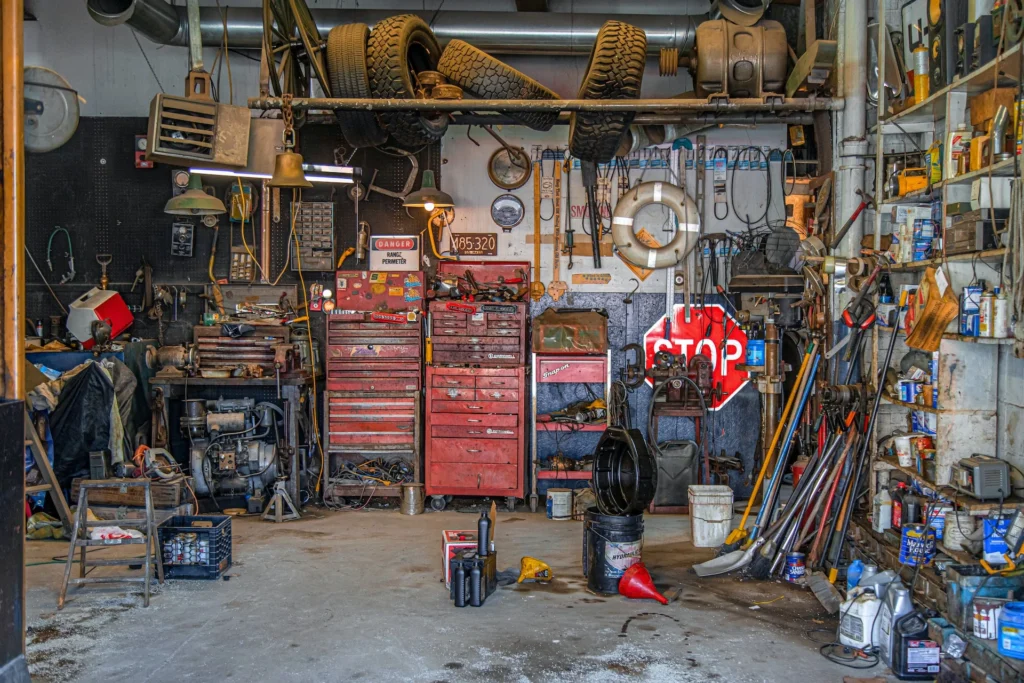Are you a book lover who has run out of space in your home library? Do you have a garage that you want to use for storing your books? If so, you might be wondering how to store books in a garage without damaging them.

Books are delicate objects that require proper care and attention to preserve their quality and longevity. In this article, I will guide you with the DO’s and DON’Ts of storing books in a garage, so that you can keep your books safe and sound. Whether you are a collector, a reader, or a student, these tips will help you store your books in a way that protects them from moisture, pests, and other hazards.
Can Books Be Stored In A Garage?
Yes, books can be stored in a garage, but it’s important to take certain precautions to protect them from damage. Garages are often exposed to temperature fluctuations, humidity, dust, and pests, which can all affect the condition of your books.
In general, it’s best to store your books in a cool, dry, and dark place that is free from moisture and sunlight.
Is It A Good Idea To Store Books In A Garage?
Storing books in a garage can be a good idea if you don’t have enough space in your home or apartment but it is not recommended.
Are you moving to a new place and don’t now what to do with your old books. Check out my complete guide on taking care of book when moving to a new place. It’ll help you a lot!
If you have not inspected your books for quite a while then there is a good chance that there might be bed bugs in them. Check out my detailed guide on How To Check Books For Bed Bugs And How To Get Rid Of Them?
Best Ways To Store Books In A Garage
Books are a valuable asset that can provide knowledge, entertainment, and inspiration. However, storing books can be a challenge, especially if you have limited space in your home. Here are some tips to help you keep your books safe and organized.
Keep Books Off The Floor
The garage floor can be damp and prone to flooding, which can damage your books. To avoid this, store your books on shelves or bookcases that are raised off the ground.
Use plastic storage containers: Plastic storage containers are a great way to protect your books from dust, moisture, and pests. Choose containers that are large enough to hold your books without bending or damaging them.
Avoid Direct Sunlight
Direct sunlight can cause your books to fade and deteriorate over time. To prevent this, store your books in a shaded area of the garage or use curtains or blinds to block out the sun.
Keep Books Away From Heat Sources
Heat can also damage your books by causing them to warp or dry out. Avoid storing your books near heaters or other heat sources.
Organize Your Books
Organizing your books by author, genre, or topic can make it easier to find the book you’re looking for. Use bookends or dividers to keep your books upright and prevent them from falling over.
Label Your Containers
If you’re storing your books in plastic containers, be sure to label them with the contents so you can easily find the book you’re looking for.
Check On Your Books Regularly
Even if you’ve taken steps to protect your books, it’s still a good idea to check on them regularly. Look for signs of damage or pests and take action if necessary.
The DO’s and DONT’s
In general, it’s best to store your books in a cool, dry, and dark place that is free from moisture and sunlight. If you want to store your books in a garage, here are some DO’s and DON’Ts to keep in mind:
DO’s:
- Store your books in plastic bins or boxes with lids that seal tightly.
- Use acid-free paper or cardboard to wrap your books individually before placing them in the bins or boxes.
- Label the bins or boxes with the contents and date of storage for easy retrieval.
- Use a dehumidifier or moisture absorber to keep the humidity level below 50%.
- Use a pest control product that is safe for books and humans to prevent infestations.
DONT’s:
- Store your books directly on the floor or against the walls.
- Store your books in cardboard boxes that are not acid-free.
- Store your books in areas that are exposed to direct sunlight or extreme temperatures.
- Store your books near sources of moisture such as water heaters or washing machines.
- Store your books near areas that are prone to pests such as food or garbage.
Conclusion
Storing books in a garage can be challenging, but with the right precautions, you can keep your books safe and organized. By keeping your books off the floor, using plastic storage containers, avoiding direct sunlight and heat sources, organizing your books, labeling your containers, and checking on your books regularly, you can ensure that your books remain in good condition for years to come.






